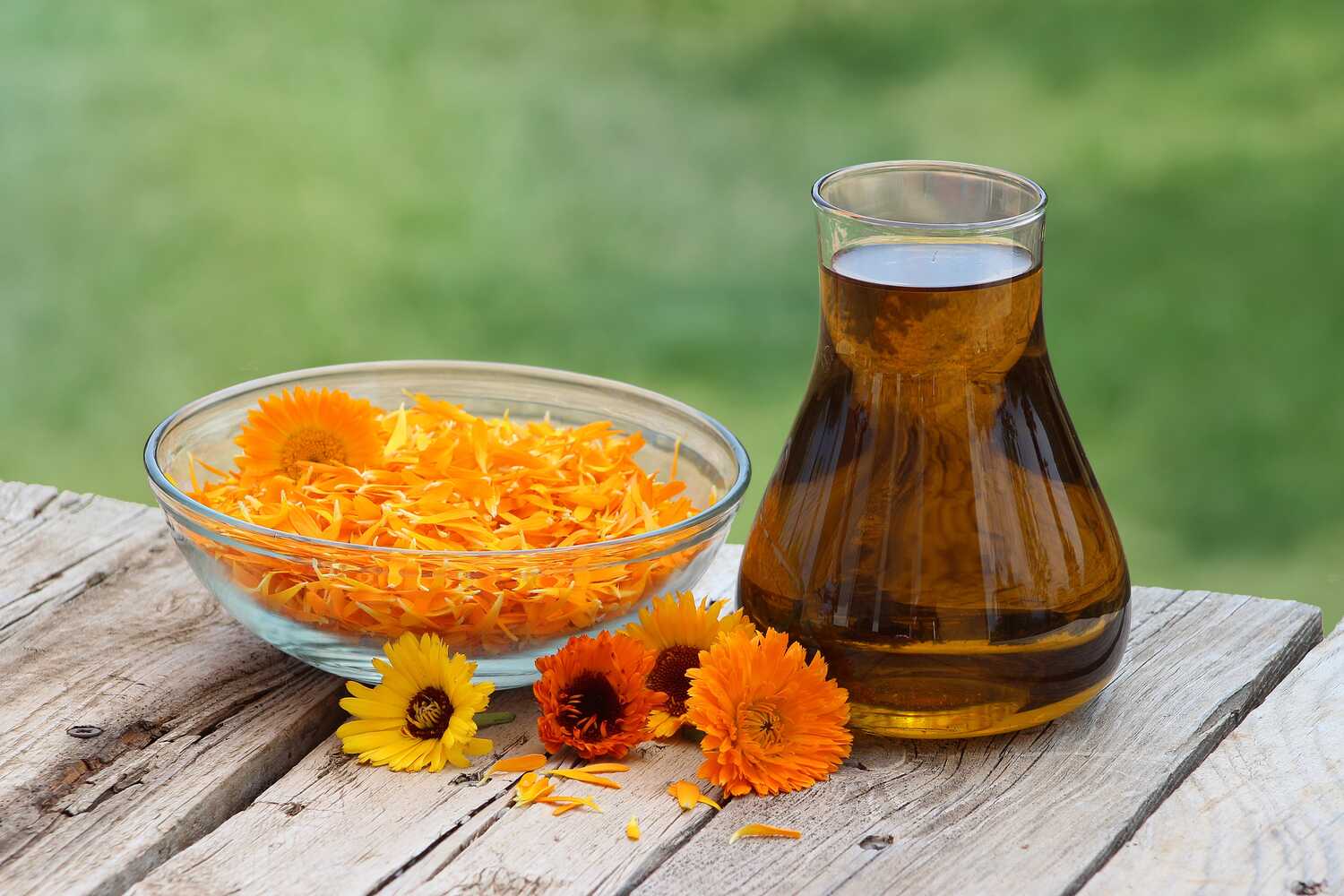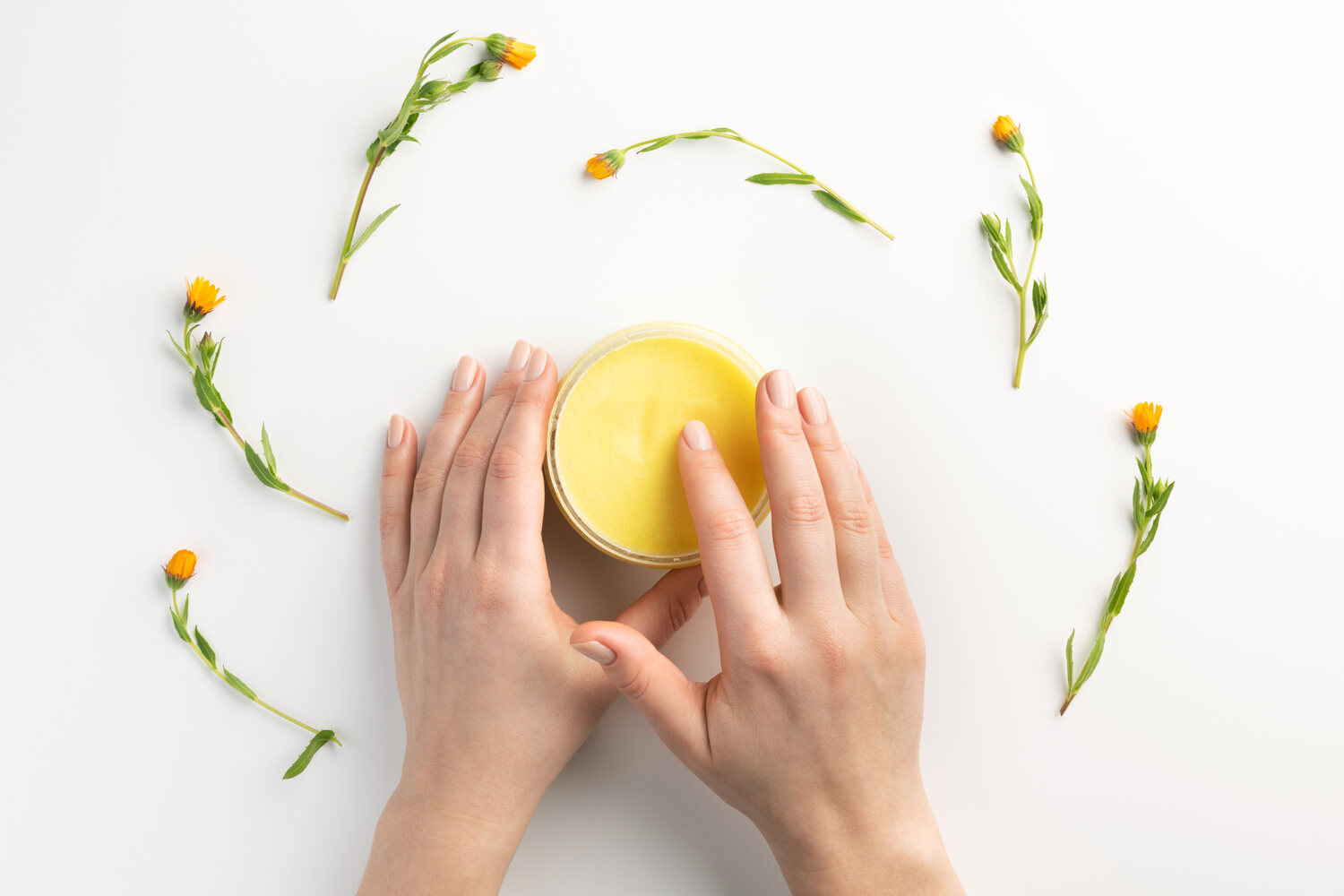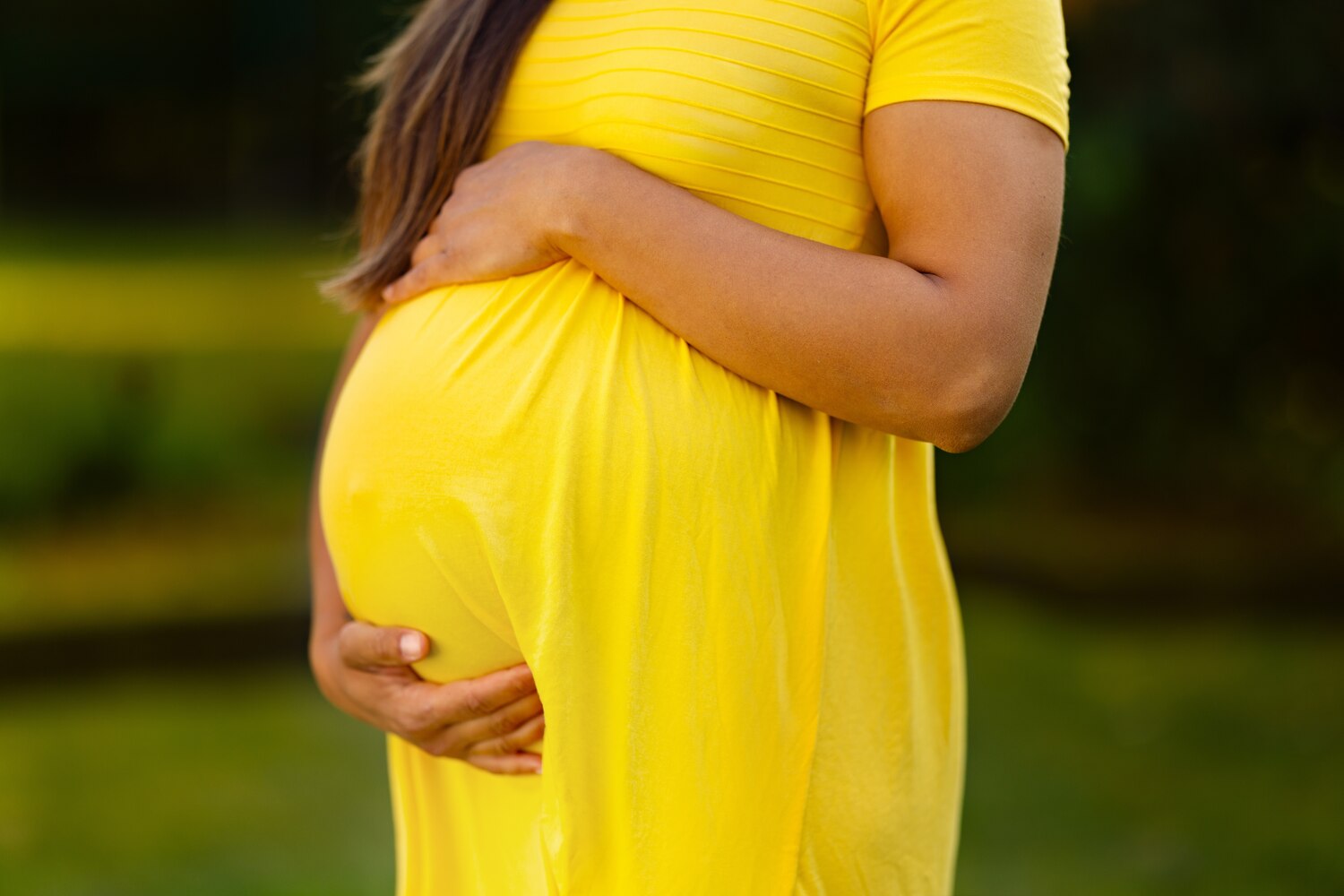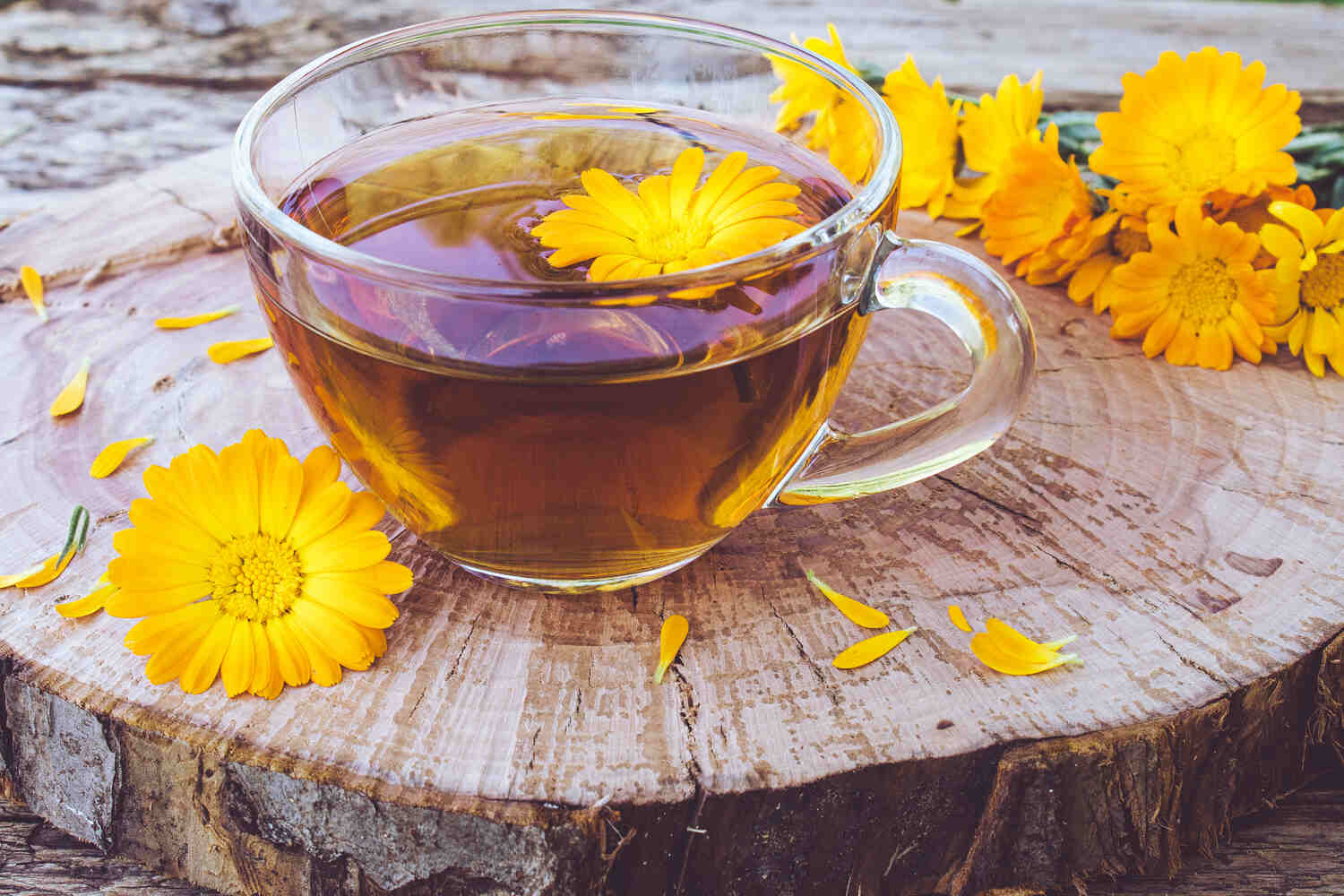
Pregnancy is a beautiful journey in every woman’s life. During this period, family members guided and suggested different herbal remedies for the women’s and their babies’ well-being. Calendula is one of the most common herbal flowering plants in the daisy family and has huge medicinal value. It has phytochemicals that show antimicrobial, anti-inflammatory, and antispasmodic effects. It has multiple health benefits that cannot be neglected.
However, modern pregnant women may feel unsafe using certain herbal substances without proper scientific information. You may ask yourself if calendula during pregnancy is safe or harmful. To know the answer, just dig into the article and decide if you should take calendula during pregnancy.
In This Article
- Are Marigolds The Same As Calendula?
- General Medicinal Uses Of Calendula
- Is Calendula Safe During Pregnancy?
- Is It Safe To Use Calendula Topically During Pregnancy?
- Is Calendula Tea Safe During Pregnancy?
- Side Effects Of Calendula
- FAQ’s
Are Marigolds The Same As Calendula?
Simply, the answer is no. Marigolds and calendula are different plants; however, both belong to the sunflower family and have different genera. You can differentiate them by their smell, as calendula has a sweet aroma, whereas marigolds have a pungent, unpleasant odor. Furthermore, you can find small, compact petals and thinner leaves in marigolds. On the other hand, calendula has long petals with round, wide leaves. From a medicinal perspective, calendulas are edible flowering plants with multiple medicinal values. Although some species of marigolds are edible, their medicinal values are still unrecognized.
General Medicinal Uses Of Calendula

As stated earlier, calendula has countless medicinal impacts. A few of them are pointed out below.
1. Rich in Antioxidants
Calendula is full of antioxidant substances like flavonoids, carotenoids, and polyphenols that fight against oxidative stress in the human body. Furthermore, it has anti-inflammatory properties that reduce chronic inflammation and pain symptoms (1).
2. Promote Wound and Ulcer Healing
Calendula extract is used in ointments, body oils, and wound care solutions for treating wounds and skin ulcers. You can apply calendula tea to your skin directly or via cloth. Calendula extract may promote wound healing by regulating collagen protein production in wound areas.
3. Antifungal and Antimicrobial Activity
Calendula also possesses antimicrobial and antifungal activities (2). After knowing the facts, you will be astonished that calendula oil is effective against 23 strains of candida yeast infections that cause common skin, genital, and oral infections. A study recognized that an extract of calendula could suppress the growth of the leishmania parasite and prevent the skin disease known as leishmaniasis(3). The disease can harm your vital organs and spleen.
4. Promotes Oral Health
Have you heard about gingivitis? Gingivitis is a common chronic gum inflammation, but calendula can treat it. A human study on calendula mouthwash indicated a positive response in preventing oral complications (4). In addition, calendula mouthwash reduces the load of microbes in the mouth and promotes gum health. In the case of sore throats, gargling with calendula tea can treat your complication.
Is Calendula Safe During Pregnancy?

It is found that calendula was non-toxic during the preimplantation stage but decreased maternal body weight during the fatal period. Therefore, experts are advised to avoid the use of calendula during pregnancy. Furthermore, calendula reduces the chances of conception and elevates the risk of miscarriage.
Is It Safe to Use Calendula Topically During Pregnancy?
The European Scientific Co-operative on Phytotherapy strictly restricted the topical use of calendula during pregnancy as a safety measure. However, no supporting data was found that specifically recognized the negative impact of calendula during pregnancy. You may hear about stretch mark-removing cream before and after delivery.
Calendula is one of the active ingredients in such creams. However, no scientific data has been found about the adverse effects of stretch mark cream. Precisely, topical use of calendula during pregnancy is not recommended; kindly consult your gynecologist before using any calendula-based product.
Is Calendula Tea Safe During Pregnancy?

Calendula tea may induce labor and uterine contractions in pregnant women, which increases the risk of miscarriage during pregnancy. Thus, calendula tea is not safe for pregnant women. The research recognized that water infusion in the calendula is responsible for uterine contraction and induces labor (5). The condition causes complicated pregnancy and preterm delivery. Therefore, pregnant women and couples trying to have a baby should avoid calendula tea.
Side Effects of Calendula
As per the Food and Drug Administration or FDA, calendula is safe and beneficial for general use. It is widely used for skin glowing and improving skin health, but it can cause skin allergies in others. Hence, you should test the allergic ration of calendula before applying it. Additionally, pregnant women should consult their physician before taking calendula-based products to eliminate any possible risks.
Herbs are beneficial when used for a long time at regular intervals. However, it can have some unknown side effects with other herbs and medications. In pregnancy, a woman’s body faces multiple changes, both externally and internally. Therefore, one must be extra careful while taking any herbs during pregnancy. Calendula is not recommended during pregnancy, but calendula is generally a safe and effective skincare product. It has multiple health benefits for the prevention of complications. Despite the positive impact, it has some negative aspects that may cause complications in the later stages of pregnancy. Henceforth, it is advisable to avoid the use of calendula during pregnancy. Furthermore, do not apply the calendula ointment directly to open wounds, and avoid using it if you are allergic to the daisy or aster family.
FAQ’s
1. Why Is Calendula Good For Baby?
Calendula is suitable for babies and is an active ingredient in baby oils and skin care products. It can be applied to babies with minor cuts, skin rashes, and scrapes. It reduces pain, inflammation, and swelling in babies due to mild injuries. In addition, the calendula protects the baby’s skin from harmful UV rays and nourishes them.
2. Who Should Not Use Calendula?
If you are a pregnant woman, then carefully use the calendula. If you are allergic to the daisy family, you should avoid using calendula if you are on any kind of medication alert before using calendula-based products. Lastly, surgery patients should not take calendula immediately after the surgery.
References:
- Antioxidant capacity of calendula officinalis flowers extract and prevention of radiation-induced oropharyngeal mucositis in patients with head and neck cancers: a randomized controlled clinical study – [https://link.springer.com/article/10.1186/2008-2231-21-18 ]
- Antimicrobial activity of Calendula officinalis petal extracts against fungi as well as Gram-negative and Gram-positive clinical pathogens – [https://www.sciencedirect.com/science/article/abs/pii/S1744388112000096]
- In vitro anti-leishmanial activity of methanolic extracts of Calendula officinalis flowers, Datura stramonium seeds, and Salvia officinalis leaves – [https://www.sciencedirect.com/science/article/abs/pii/S1875536414600662]
- Evaluation of Calendula officinalis as an anti-plaque and anti-gingivitis agent – [https://www.ncbi.nlm.nih.gov/pmc/articles/PMC3917203/]
- Assessment report on Calendula officinalis – [https://www.ema.europa.eu/en/documents/herbal-report/final-assessment-report-calendula-officinalis-l-flos-revision-1_en.pdf]
